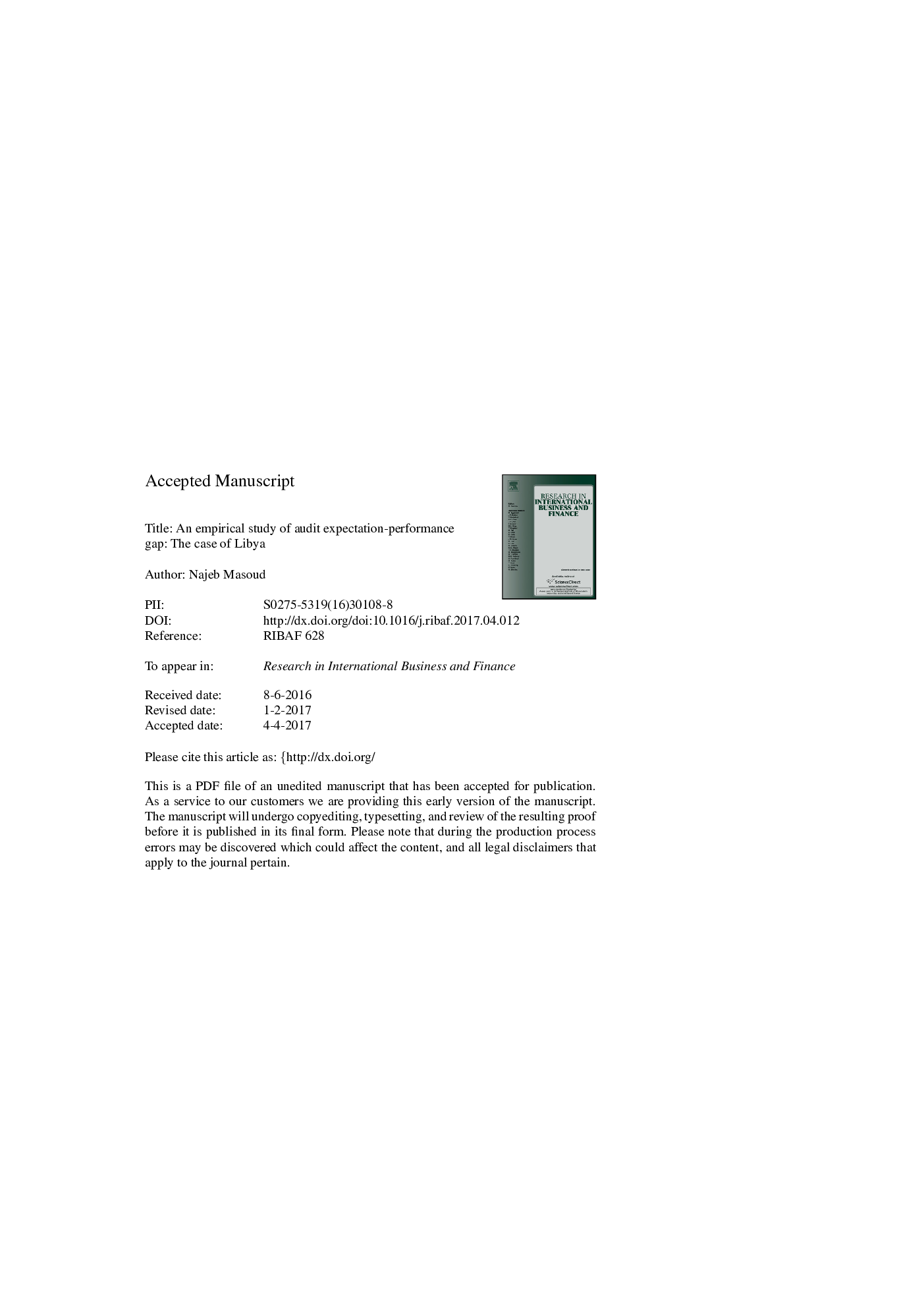| Article ID | Journal | Published Year | Pages | File Type |
|---|---|---|---|---|
| 5107350 | Research in International Business and Finance | 2017 | 22 Pages |
Abstract
The purpose of this research is to empirically examine the causes of the audit expectation gap in Libya. The study builds on the frameworks developed by Porter (1993) and Porter & Gowthorpe (2004) to investigate the influence of the audit expectation gap to the auditing profession in the case of Libya. The data was collected through a questionnaire survey randomly selected members of four broad interest groups including auditors, auditees and audit beneficiaries both inside and outside the financial community were followed by in-depth interviews. A total of 988 questionnaires were distributed from which 431 questionnaires with usable responses were received from four groups. The overall usable response rate was 44%, ranging from 47% for the financial community audit beneficiaries to 41% for the auditors group. The findings of the study revealed that there exists audit expectation-performance gap and that the gap is as result of the following factors in different levels of percentages. Deficiency standards and deficient performance gaps constitute 49% and 15%, respectively, of the audit expectation-performance gap. The audit expectation-performance gap derives from society having unreasonable expectations of auditor's significant proportion 36% of the gap. As result of the following interviews demonstrated that the objectives of auditing are not as clear to the financial statement users as they are to the auditors and the financial statement preparers in Libyan business environment. Further, we observe that reducing the expectations gap is to improve knowledge responsibilities between the auditors and user groups and understanding of the auditor's role and responsibilities through the provision of auditing illegal acts.
Related Topics
Social Sciences and Humanities
Business, Management and Accounting
Business and International Management
Authors
Najeb Masoud,
